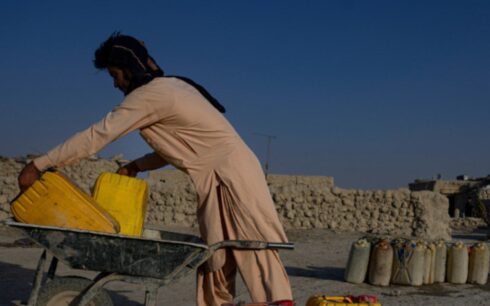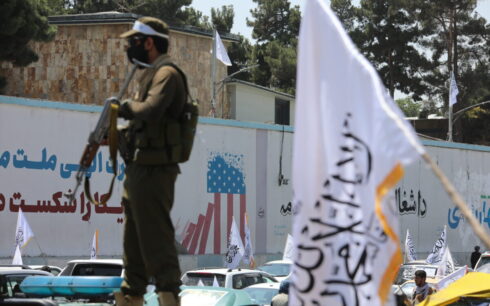KABUL, Afghanistan — A telephone call between Amir Khan Muttaqi, the Taliban’s foreign minister, and Asaad Hassan al-Shaibani, Syria’s foreign minister, has sparked widespread criticism, with many Afghans questioning why the Taliban praised Syria’s governance while imposing severe restrictions on women at home.
The Taliban-run Ministry of Foreign Affairs said Muttaqi expressed interest in diplomatic relations with Syria’s government and lauded its governance, particularly its general amnesty efforts. Zia Ahmad Takal, the ministry’s deputy spokesman, said Muttaqi “praised Syria’s efforts for general amnesty and good governance” and hoped for “the establishment of regular diplomatic relations between the two countries.”
The call drew sharp criticism from Afghan citizens and activists, who contrasted Syria’s inclusion of women in governance with the Taliban’s continued repression of women and girls. While Syria allows women to hold government positions and pursue education, the Taliban has barred women from schools, universities, and much of public life.
“Comparing the Taliban to Syria’s rulers is absurd,” said Ziba Ahmadi, a Kabul resident. “In Syria, women hold official positions and are not deprived of education or work. In Afghanistan, the Taliban has stripped women of their rights and erased their presence from society.”
Mumtaz, a women’s rights activist, said Syria’s government values women’s contributions, unlike the Taliban. “The Syrian government supports women’s participation in governance and education,” she said. “Meanwhile, the Taliban actively works to eliminate women from public life.”
Recent developments further highlight the divide. Earlier this month, Syria appointed Aisha al-Debs as head of its Office of Women’s Affairs, while the Taliban imposed fresh bans on women’s education and closed medical institutes for female students.
Critics argue that the Taliban’s governance policies are isolating Afghanistan on the international stage, whereas Syria’s rulers have managed to reduce their isolation despite years of conflict.
“The Syrian government has taken steps to engage with the international community, even under difficult circumstances,” said a political analyst. “In contrast, the Taliban’s regressive policies, especially regarding human rights, continue to block Afghanistan’s path to international legitimacy.”
The conversation between Muttaqi and al-Shaibani also reignited debates about ideological similarities and practical differences between the two governments. Ahmed al-Sharaa, a Syrian militant leader, recently stated in a BBC interview that Syria should not emulate Afghanistan’s governance model, describing Afghanistan as a tribal society with distinct challenges.
Meanwhile, the U.S. recently lifted a $10 million bounty on al-Sharaa but has retained similar sanctions on key Taliban figures, including Sirajuddin Haqqani.
“Words are meaningless without actions,” said Ahmadi. “The Taliban speaks of good governance elsewhere while neglecting the rights and needs of their own people.”





